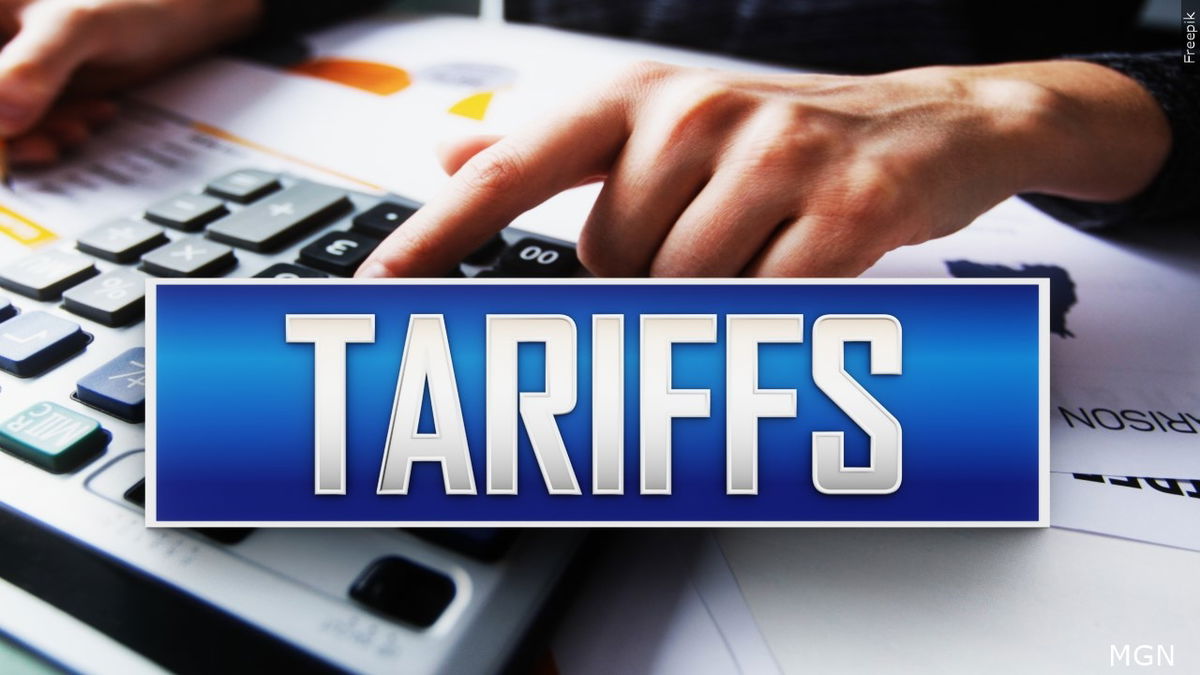Appeals court says Trump unlawfully leaned on emergency powers to impose tariffs

CNN Newsource
Originally Published: 29 AUG 25 17:57 ET
Updated: 29 AUG 25 18:21 ET
By Devan Cole, Katelyn Polantz, Ramishah Maruf, Elisabeth Buchwald, CNN
(CNN) —A federal appeals court ruled Friday that President Donald Trump unlawfully leaned on emergency powers to impose sweeping tariffs earlier this year.
“Because we agree that (the International Emergency Economic Powers Act’s) grant of presidential authority to ‘regulate’ imports does not authorize the tariffs imposed by the Executive Orders, we affirm,” the Federal Circuit said in an unsigned opinion upholding a lower-court ruling against Trump’s tariffs.
The tariffs remain in place for now, after the court delayed implementation of its order until October. That gives the Trump administration time to file an appeal with the Supreme Court.
“All tariffs are still in effect!” Trump posted late Friday on social media. “If these tariffs ever went away, it would a total disaster for our country.”
Trump has used his sweeping tariffs to reshape not just global trade, but alliances with friendly nations and relationships with adversaries. The levies are a cornerstone of his economic plan. If some of the powers he’s claimed to set those tariffs are ultimately permanently blocked, the administration would need to find other levers to accomplish some of Trump’s ambitious goals.
Treasury Secretary Scott Bessent said in June that tariff negotiations with America’s trading partners would likely be “wrapped up” by Labor Day. However, that deadline seems improbable, given that foreign leaders currently reviewing their trade terms with the United States may now require additional clarity on the legal application of Trump’s tariffs.
In a statement on Friday, the White House defended the president’s powers to impose import taxes using the economic emergency law.
“President Trump lawfully exercised the tariff powers granted to him by Congress to defend our national and economic security from foreign threats,” White House spokesman Kush Desai said in the statement. “The President’s tariffs remain in effect, and we look forward to ultimate victory on this matter.”
The court ruled that Congress, in passing the IEEPA, did not give the president “wide-ranging authority to impose tariffs of the nature of the Trafficking and Reciprocal Tariffs.”
“Notably, when drafting IEEPA, Congress did not use the term ‘tariff’ or any of its synonyms, like ‘duty’ or ‘tax,’” the court said in its majority ruling. “The absence of any such tariff language in IEEPA contrasts with statutes where Congress has affirmatively granted such power and included clear limits on that power.”
The case was heard by the full bench of the Federal Circuit. Seven of its judges ruled against Trump, while four dissented from the court’s decision.
Though the majority ruled that Trump exceeded his authority when he used the emergency law to impose the tariffs, it declined to block them outright. Instead, it sent a pair of challenges to the levies back to the lower court to take another look at whether it went too far when it blocked the tariffs on a nationwide basis.
A federal court ruled in May that Trump did not have the authority under the IEEPA to impose sweeping tariffs. The Trump administration immediately appealed the decision, setting the course for a legal battle over the economic policy that Trump promises will re-focus the American economy on manufacturing, but could raise prices for small businesses and consumers.
A three-judge panel at the US Court of International Trade blocked all tariffs invoked under IEEPA, the “Liberation Day” tariffs Trump announced on April 2, and the tariffs placed earlier this year against China, Mexico and Canada that were designed to combat fentanyl coming into the United States. Notably, the order did not include the 25% tariffs on autos, auto parts, steel or aluminum, which were under a different law, Section 232 of the Trade Expansion Act.
The panel unanimously came to a summary judgment on two separate cases in one opinion. One was a lawsuit filed in April by the Liberty Justice Center, a libertarian legal advocacy group representing wine-seller VOS Selections and four other small businesses. The other was filed by 12 Democratic states against the government over tariffs.
The appeals court consolidated those two cases.
This is a developing story and will be updated.
CNN’s Samantha Waldenberg and Bryan Mena contributed reporting.
The-CNN-Wire™ & © 2025 Cable News Network, Inc., a Warner Bros. Discovery Company. All rights reserved.